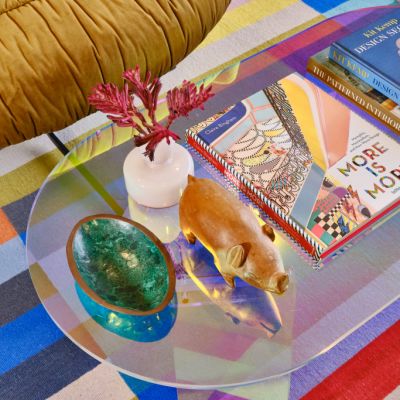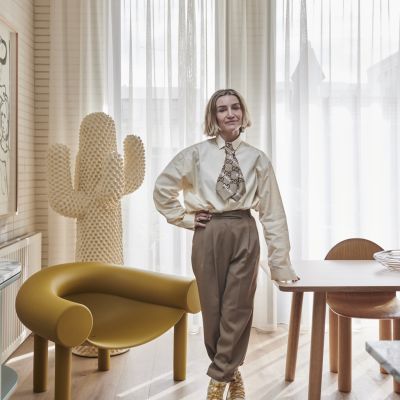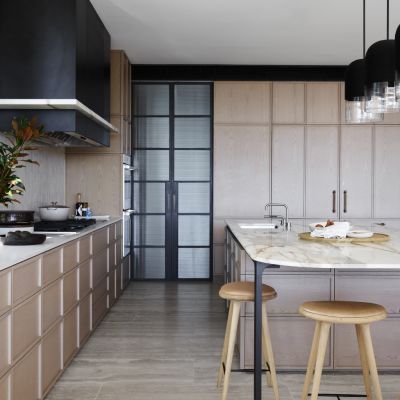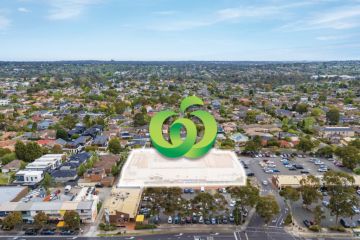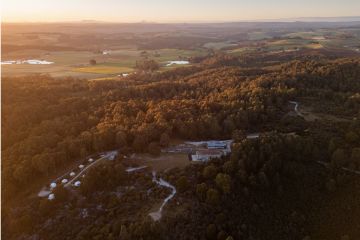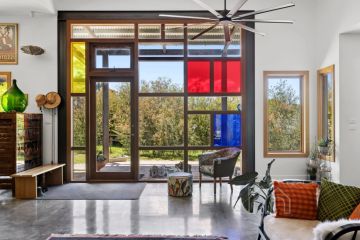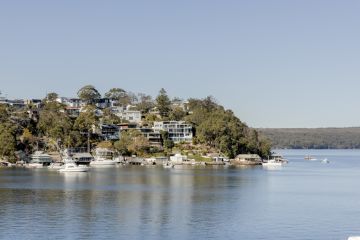'The perfect Australian family home': A Noosa Hinterland retreat set to raise the bar
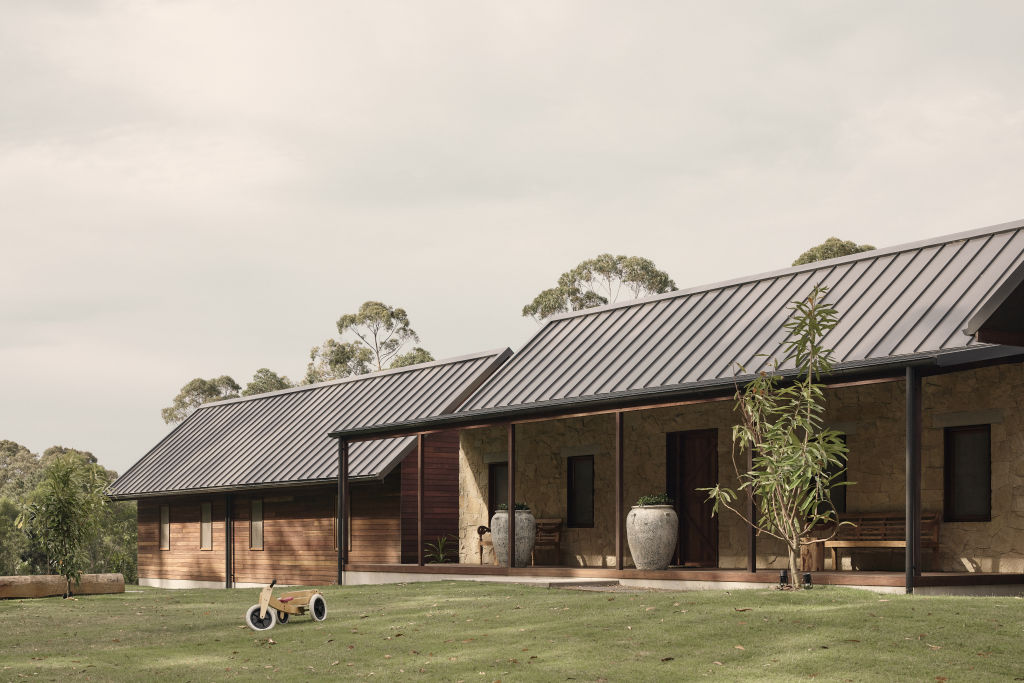
Quintessential ocean vistas and a native bush outlook go hand-in-hand with a classic Aussie beach house. Australis, a contemporary take on the traditional Queenslander, is aptly named for its rustic good looks and familiar roof lines and the native Livistona australis palm forests that embrace it.
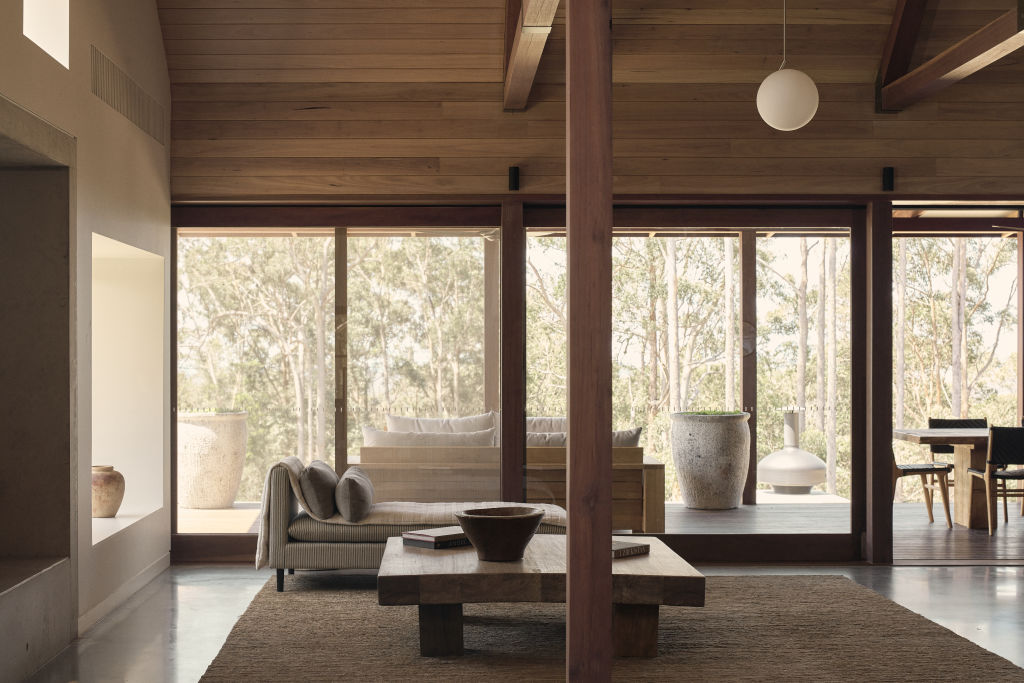
Located in the Noosa Hinterland, David Teeland from Sealand Architects drew on the traditional timber buildings that populated the area during the early 1900s. “It was primarily a timber town, supplying harvested pine and hardwood to Brisbane by boat,” he says. “The principal inspiration for this house were those buildings with their elegant gable roofs and timber construction.”
Crafted in Australian spotted gum hardwood battens, natural stone and concrete, a series of connected pavilions ebb and flow with the land, allowing the house to merge seamlessly with its landscape. Designed to meet the owner’s needs, it is fitted with a 30-kilowatt solar system, collects rainwater, and recycles its wastewater for the garden using an advanced secondary system.
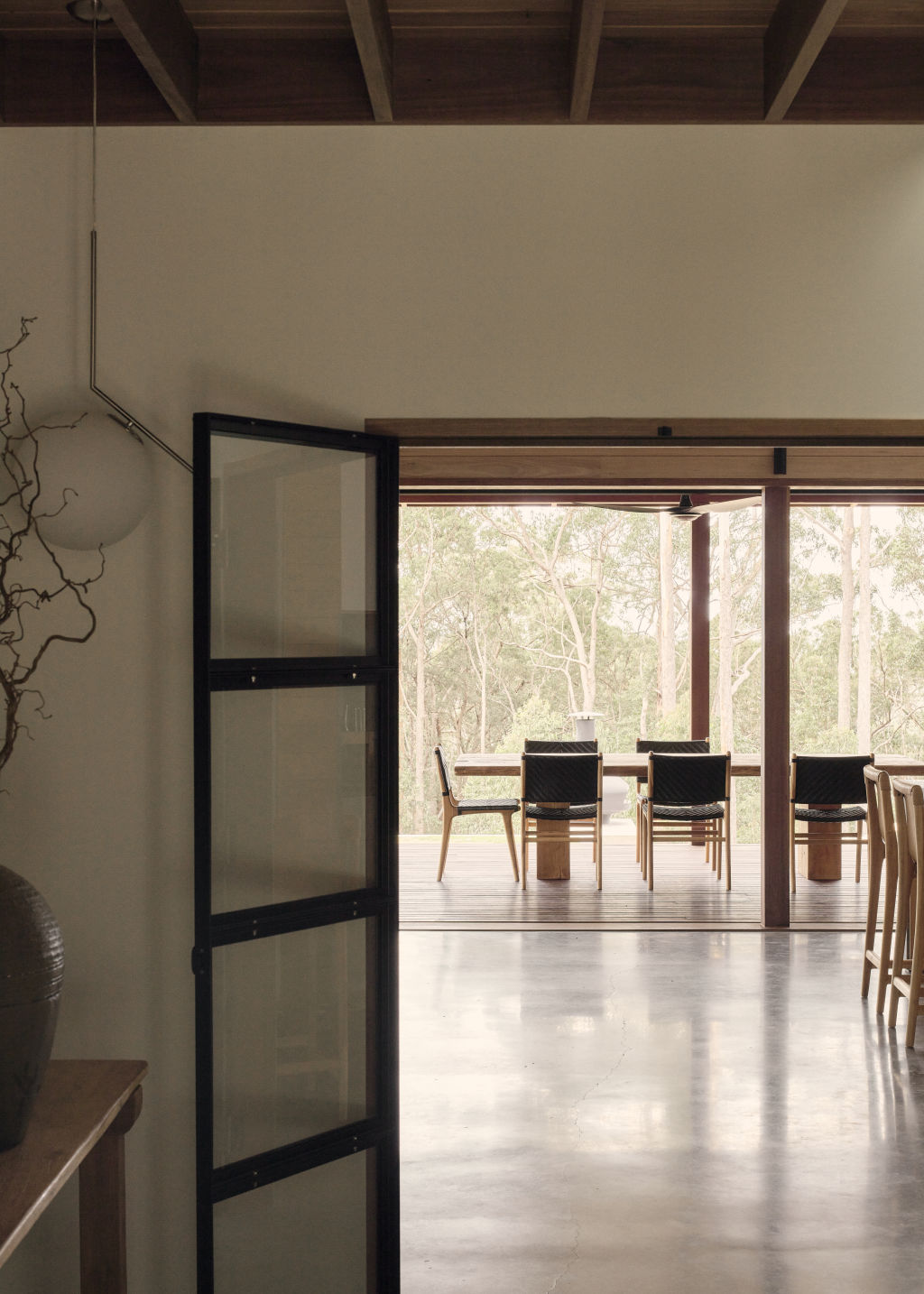
The rustic presence of the home’s exterior contrasts strongly with the mood of the refined, light-filled interior. “Our selections needed the capacity to age over time,” says designer Chloe Tozer from CLO Studios. “We wanted to create a home that felt like it was always there and where family-focused living, history, and design find a seamless balance.”
Soothing curated spaces play beneath ceilings that follow the pitch of the gable roof. Blackbutt timber and burnished concrete flooring provide a canvas for natural fabrics and woods sourced by local craftsmen. These include the entry console and outdoor dining table crafted from recycled Javanese teak and blackbutt logs found on a friend’s property that act as side tables.
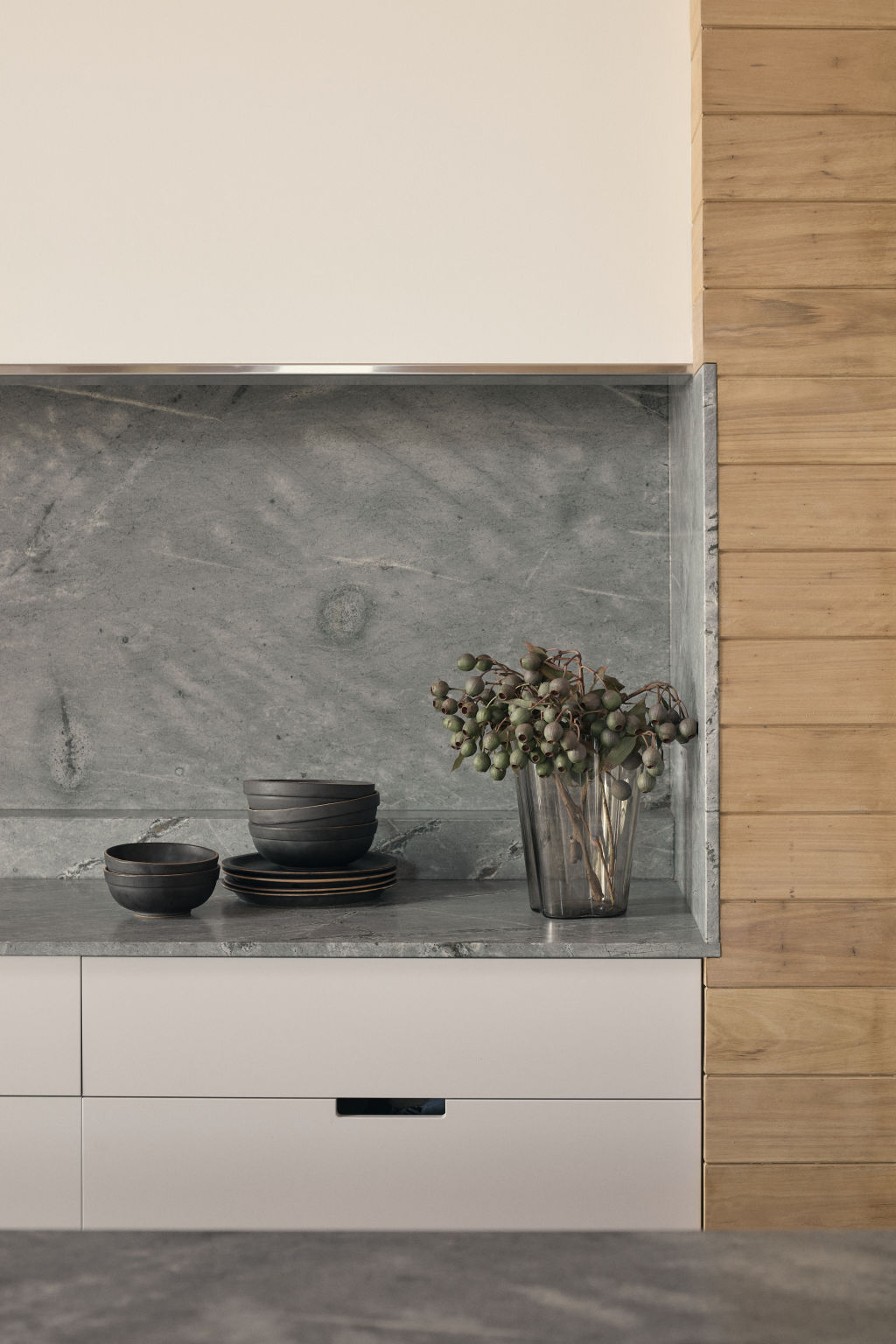
The kitchen features a soaring ceiling and a melee of toasty timbers, tan leathers and refined stone quartzite. “We selected this stone not only for its beautiful colour tone and gorgeous patterning but because it is an incredibly dense type of stone,” says Teeland. “Quartzite is much more resistant to staining than marble and other softer stone types.”
In the living room, an off-form concrete fireplace set into an enclave warms the space and a large Armadillo rug grounds a restrained format of furnishings, including a chic custom chaise lounge and simple teak coffee table. Window dressing has been foregone, allowing an easy connection with the native forest that is ever-present through large sliding glass doors and windows.
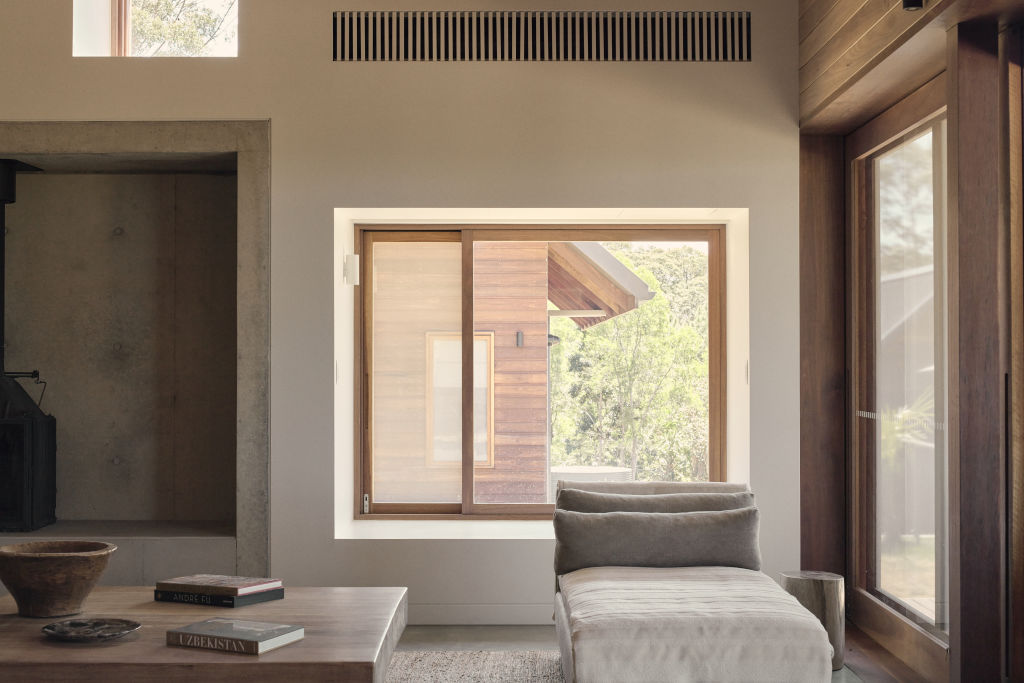
The art selection, a collaboration between CLO Studios and the owner, celebrates Australian talent like Lauren Jones and Ash Holmes and punctuates the home’s soothing natural palette.
The main bedroom feels soft and restful. It is gently illuminated by various lights, including a mouthblown glass wall light and sheer window dressings that filter in sunlight. Layers of textured bed linens from Hale & Mercantile forge a balance between its minimal styling and rustic timber features.
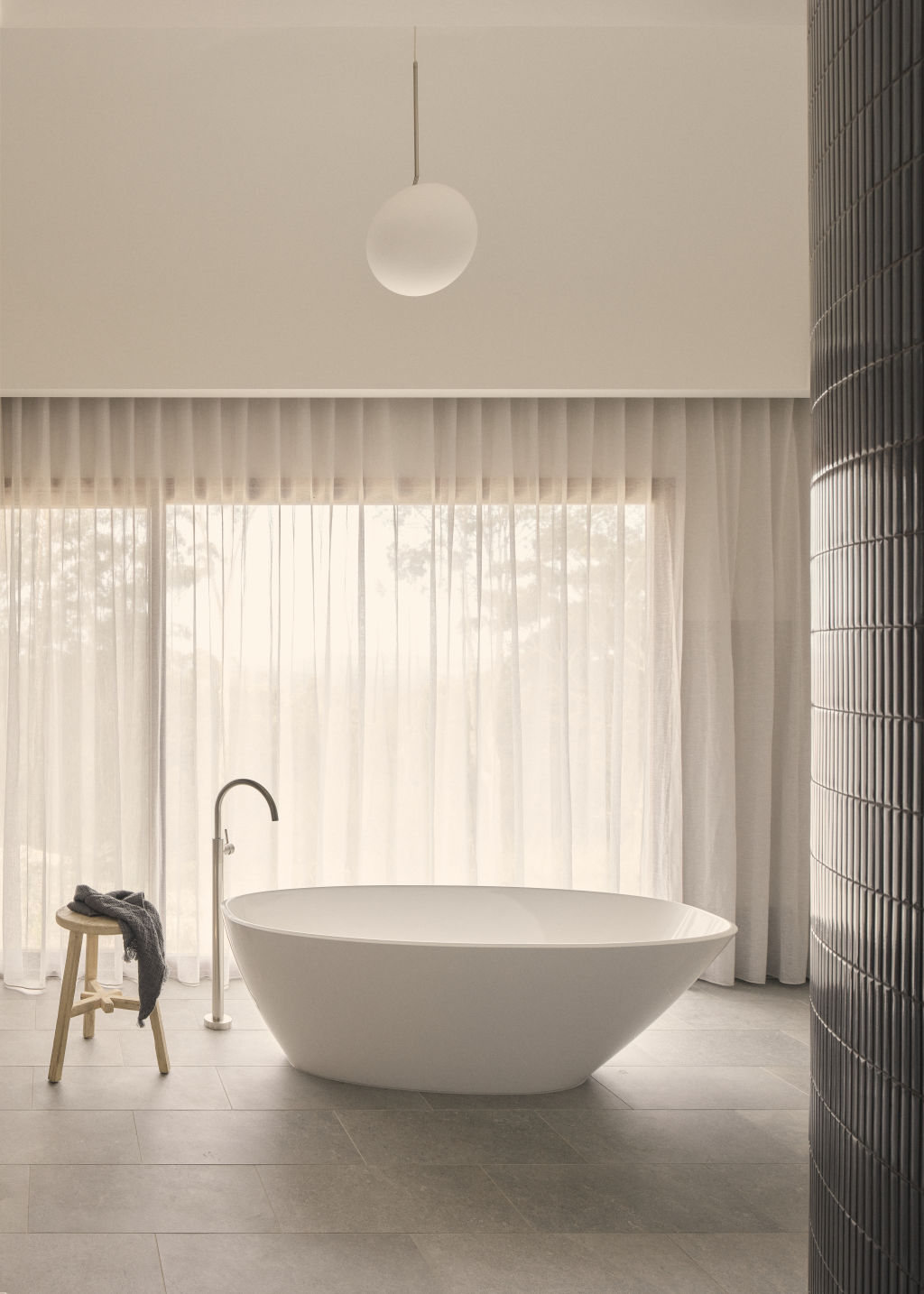
Equally tranquil is the bathroom, where a limestone bath sits surrounded by horizontally stacked tiles and sheer curtains. “Being a family house near the beach, we wanted to use materials that were robust, easy to maintain and encouraged a relaxed lifestyle,” says Teeland. “The porcelain floor tiles have a lovely natural variation and similar colour tone to beach rocks, while the beautiful Japanese Inax tiles have a subtle ocean blue colour variation that reinforces a sense of being near the ocean. Being small, they curve the bathroom walls, which gives the space a nurturing quality.”
The home has delivered the owners everything they need and a successful blend of nature, tradition and modernity that characterise Australis as a whole. “Our aim was to create a tranquil family home responding to its natural environment,” says Tozer. “It’s the perfect Australian family home.”
We recommend
We thought you might like
States
Capital Cities
Capital Cities - Rentals
Popular Areas
Allhomes
More
- © 2025, CoStar Group Inc.
